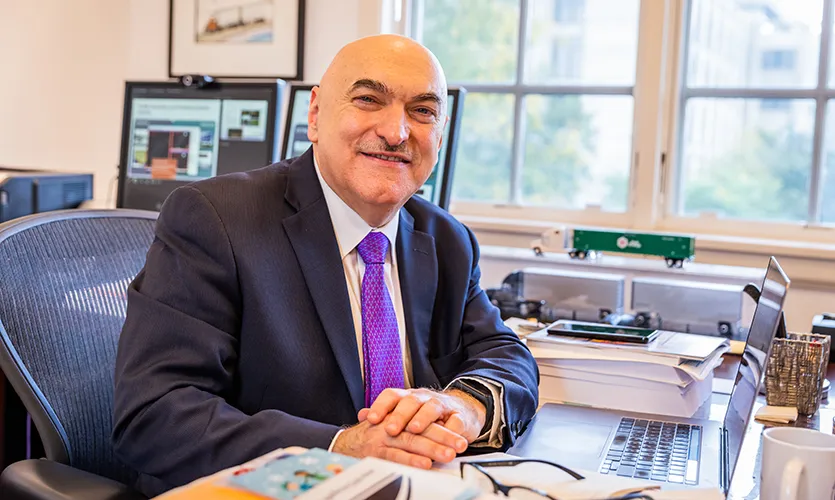The International Bridge, Tunnel and Turnpike Association (IBTTA) and ITS America (ITSA) have commented on the inauguration of Donald Trump as President of the US, saying they look forward to working with him and his administration to implement the proposed investment in the country’s infrastructure.
IBTTA executive director and CEO Patrick D. Jones said that IBTTA and the tolling industry are ready to work with President Trump and his new administration to find ways to realise the president's campaign
January 23, 2017
Read time: 2 mins
The International Bridge, Tunnel and Turnpike Association (63 IBTTA) and ITS America (ITSA) have commented on the inauguration of Donald Trump as President of the US, saying they look forward to working with him and his administration to implement the proposed investment in the country’s infrastructure.
IBTTA executive director and CEO Patrick D. Jones said that IBTTA and the tolling industry are ready to work with President Trump and his new administration to find ways to realise the president's campaign promise to rebuild America’s crumbling roads, bridges, and other critical infrastructure over the next decade.
He said, “We look forward to ensuring that toll finance remains an important component of any proposal to rebuild our nation's transportation infrastructure. We will do our part to meet our country's surface transportation infrastructure needs."
ITSA president and CEO Regina Hopper congratulated President Trump on his inauguration and said it was quite meaningful to all Americans that the the final actions of the outgoing leadership of the324 US Department of Transportation were to advance automated vehicle test beds and vehicle-to-infrastructure guidance.
She also commented that President Trump has clearly and rightly identified infrastructure as a top priority, and ITSA looks forward to working with his administration to advance both traditional and transformational transportation initiatives.”
“The intelligent transportation community stands ready to work with the Trump administration in the spirit of public-private collaboration to unlock for all Americans the full potential of what intelligent transportation systems have to offer,” she concluded.
IBTTA executive director and CEO Patrick D. Jones said that IBTTA and the tolling industry are ready to work with President Trump and his new administration to find ways to realise the president's campaign promise to rebuild America’s crumbling roads, bridges, and other critical infrastructure over the next decade.
He said, “We look forward to ensuring that toll finance remains an important component of any proposal to rebuild our nation's transportation infrastructure. We will do our part to meet our country's surface transportation infrastructure needs."
ITSA president and CEO Regina Hopper congratulated President Trump on his inauguration and said it was quite meaningful to all Americans that the the final actions of the outgoing leadership of the
She also commented that President Trump has clearly and rightly identified infrastructure as a top priority, and ITSA looks forward to working with his administration to advance both traditional and transformational transportation initiatives.”
“The intelligent transportation community stands ready to work with the Trump administration in the spirit of public-private collaboration to unlock for all Americans the full potential of what intelligent transportation systems have to offer,” she concluded.








